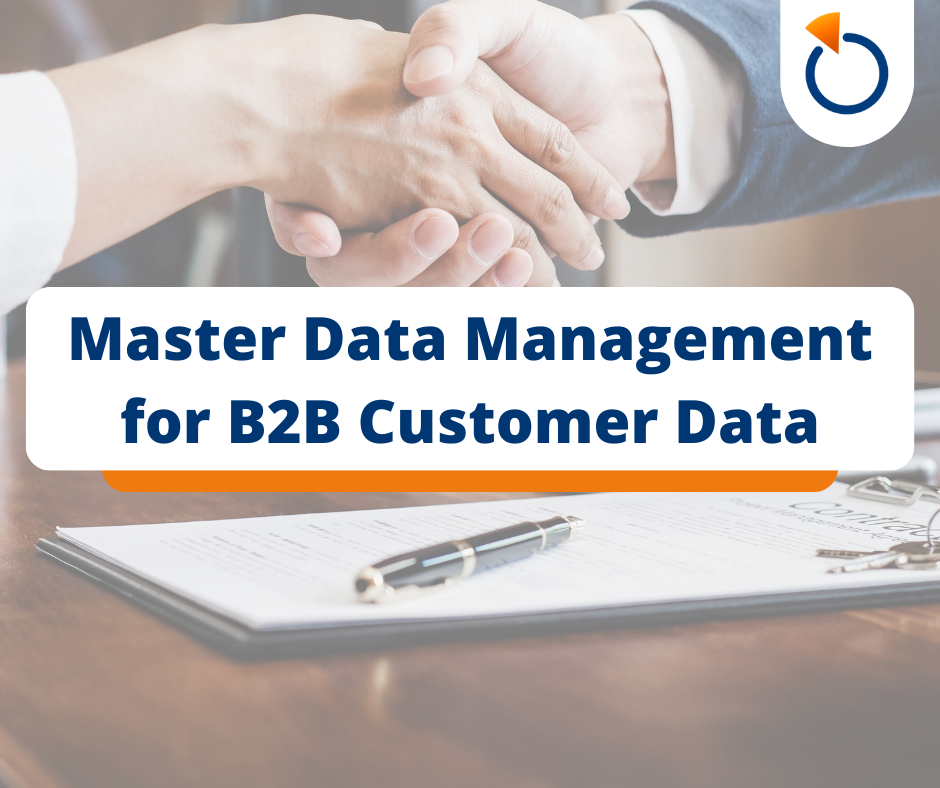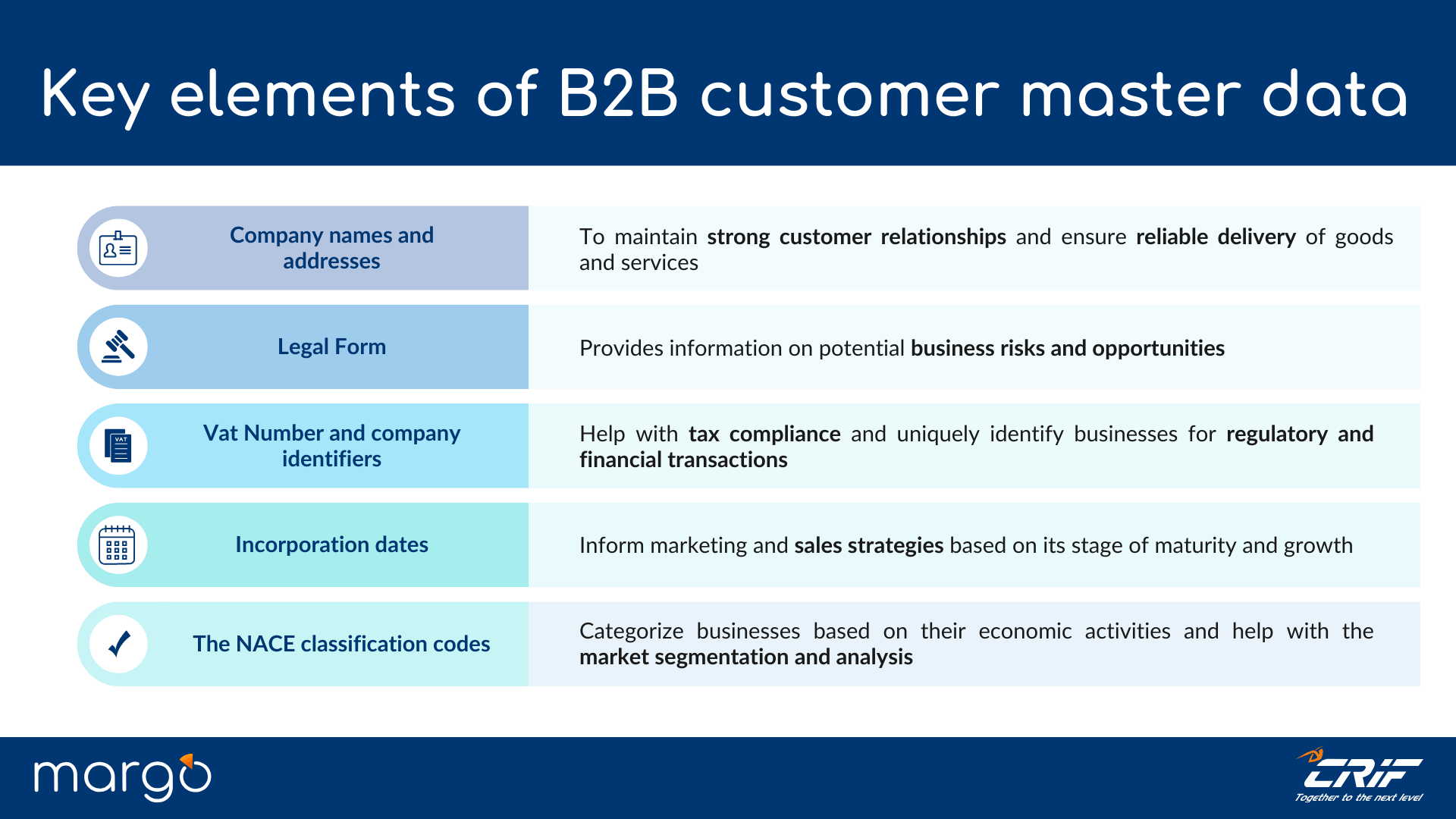
What is Customer Master Data Management?
Master data management (MDM) is the practice of creating and maintain master data in an organization, but it can be referring a particular data, in this specific case to the customer.
Customer Master Data Management aims to create a single, accurate and permanent set of identifiers and attributes that describe a identify a company’s customers.
In the B2B context, MDM ensures that all departments have a consistent, single source of truth about their customers. This consistency is essential for optimizing marketing campaigns, personalizing sales approaches and maintaining efficient customer relationship management (CRM) systems.
This data includes vital details such as company names, addresses, legal form, VAT numbers, company identifiers, incorporation dates, and NACE classification codes.
Let’s have a look at them one by one.
Key Elements of B2B customer master data
- Company names and addresses: accurate identification and contact details are fundamental to maintaining strong customer relationships and ensuring reliable delivery of goods and services.
- Legal form: this data helps to tailor business strategies and compliance requirements. For example, understanding the legal form of a company (such as GmbH, AG, or KG in Germany) provides information on potential business risks and opportunities.
- VAT Numbers and company identifiers: help with tax compliance and uniquely identify businesses for regulatory and financial transactions, especially in the DACH region, where numerous businesses may have similar names. Accurate VAT numbers ensure proper tax management and compliance, while company identifiers (such as Handelsregisternummer in Germany) are essential for legal and financial transactions.
- Incorporation dates: a company's date of incorporation can inform marketing and sales strategies based on its stage of maturity and growth. Knowing when a company was founded provides valuable context about its stage of development, or it can be essential for segmenting customers and tailoring communication strategies. For example, recently established companies might require different solutions to those that have been around for a long time.
- The NACE classification codes: These codes categorize economic activities and facilitate statistical reporting and comparison in Europe. For example, marketing strategies for a manufacturing company will be very different from those for a service provider.

What are the data sources for customer master data?
Since every enterprise has a long and varied list of internal and external customer data sources, it is important to match customer data with official business registers. ERPs, CRMs or Marketing Automation are some of the tools necessary to manage this data for:
- Regulatory compliance – especially in Germany, Austria and Switzerland that have strict requirements for data accuracy. It can be helpful to avoid potential fines, legal issues and reputational damage.
- Improved data quality – minimize errors and ensure that your records reflect current reality.
- Trust and credibility crucial for in the B2B space
- Streamlined operations such as invoicing, shipping, and customer support.
- Improved business insights: High-quality, trade-register-compliant data improves analysis and reporting capabilities, enabling better strategic planning and market understanding.
The consequences of poor customer master data
Having inaccurate or incomplete customer master data can have significant negative impacts across an organization:
- Inaccurate marketing campaigns: Without reliable data, it is difficult to target the right audience, leading to ineffective campaigns and wasted resources.
- Sales inefficiencies: Sales teams rely on accurate customer information for lead generation and relationship management. Poor data quality can lead to missed opportunities and reduced sales productivity.
- Operational disruptions: Incorrect data can lead to delivery problems, billing errors and compliance risks, all of which disrupt business operations and reduce customer satisfaction.
- Strategic missteps: Decisions based on inaccurate data can misguide business strategies, leading to poor resource allocation and missed growth opportunities.
All the key elements of B2B master data management are included in Margo, CRIF's marketing intelligence platform that will help you organize your customer data in Italy, Austria, Germany and Switzerland in order to grow your business.
With Margo's master data management capabilities, you can ensure that your b2b customer data is accurate, consistent, and up-to-date across your systems and channels. When such data is fed into your Company CRM you can deliver personalized and relevant experiences to your customers and sales team at every touchpoint.
When B2B company master data is in synch with trade register data it also easier to analyze the B2B market, find new leads, manage your sales and keep your corporate systems data quality integrity in check.
Contact us for more information or try the Margo platform to see the benefits first hand.